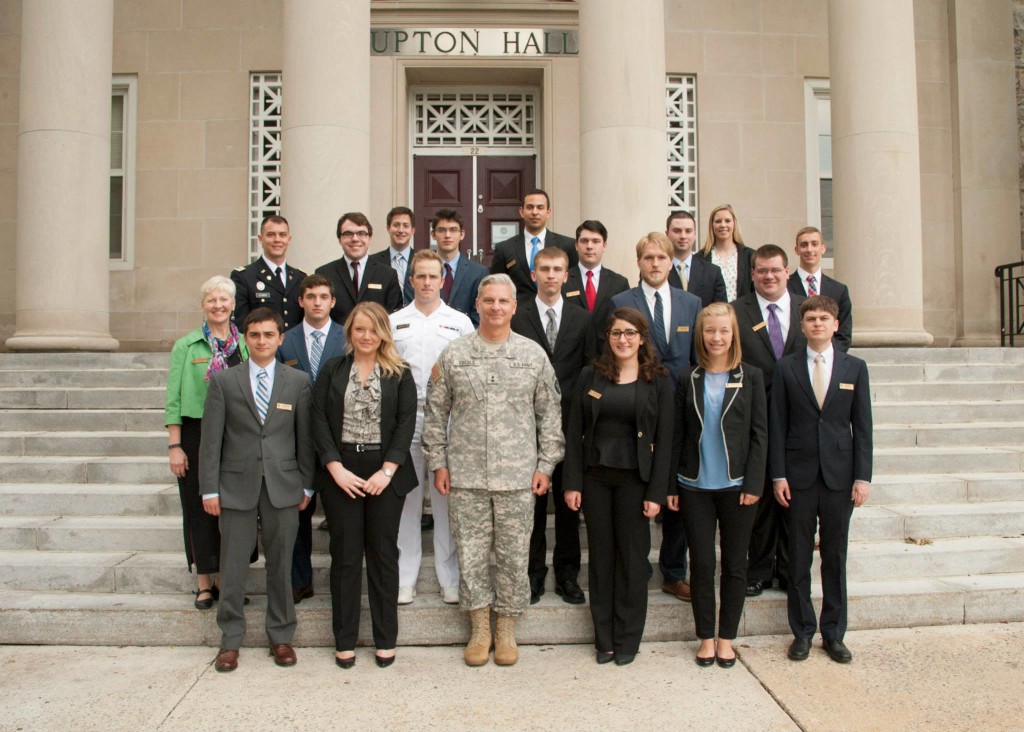This summer, I had an incredible experience as an intern at the Peacekeeping and Stability Operations Institute (PKSOI) at the U.S. Army War College. PKSOI is responsible for developing U.S. military doctrine related to peace and stability operations, delivering relevant educational and training programs, and collecting, evaluating, and disseminating lessons learned from past and current peace and stability operations around the world, most notably the American interventions in Iraq and Afghanistan. My primary assignment was assisting my mentor Dr. Michael Spangler, a thirty-four year veteran of the Foreign Service, revise the curriculum of the class he teaches about China at the Army War College and develop a new curriculum for a similar class to be offered in a distance-education format. Additional assignments included helping facilitate a retreat for high-level officials from the United Nations Department of Field Support and performing a review of the joint PKSOI-USIP document “Guiding Principles of Stabilization and Reconstruction.”
My internship allowed me to develop some of the most important “soft skills” that employers look for, i.e. effective communication, interpersonal skills, critical thinking, and problem solving. Writing significant portions of the “course directive” for the distance-education version of the China course presented me with the opportunity to practice effectively communicating complex ideas using a limited number of words, a necessary skill for all the career paths I am considering. Working on a team to review the “Guiding Principles” document allowed me to develop my ability to work with a diverse group of people in a professional environment. That same assignment also helped put my critical thinking skills to the test; my team was tasked with critiquing and suggesting edits to a document written by subject matter experts (which I, of course, am not). As a busy man, my mentor was not always available to help me when I encountered problems with developing the China course curriculum. In these situations I was forced to improvise, thus improving my ability to solve complex problems under a time constraint.
I felt truly honored to work at such a prestigious institution. It was gratifying to know that the work I was doing would have a direct impact on the professional education of the next crop of senior leaders in the U.S. military and, due to the International Fellows program, the leaders of many other countries’ militaries. That international cohort of students made daily life at the Army War College an almost surreal experience. For example, in the cafeteria I would frequently stand in line with high-ranking officers from the militaries of such far-flung countries as Afghanistan, South Sudan, Malaysia, and Brazil. In my mentor’s class on China, I witnessed a colonel from Serbia and a colonel from Croatia seemingly get along swimmingly. Scenes like that certainly helped me cultivate a global perspective and, perhaps naively, gave me hope about the prospect of peaceful collaboration in international relations.
I think that this internship will significantly improve my ability to get an internship this upcoming summer with organizations like the U.S. Department of State or the Center for Strategic and International Studies, which are both places where I’d love to work after I finish my undergraduate studies. I’d like to offer my sincere thanks to the three Penn State entities that made my summer financially feasible: the Schreyer Honors College, the College of Liberal Arts, and the Strategic and Global Security Scholars Program.


Would you be able to give any information on how you applied for this internship?
At least it is more enlightening than one of the reality Television stars, kim this?
Joey what?
Lovely site, it loads genuinely quick and appears very awesome.